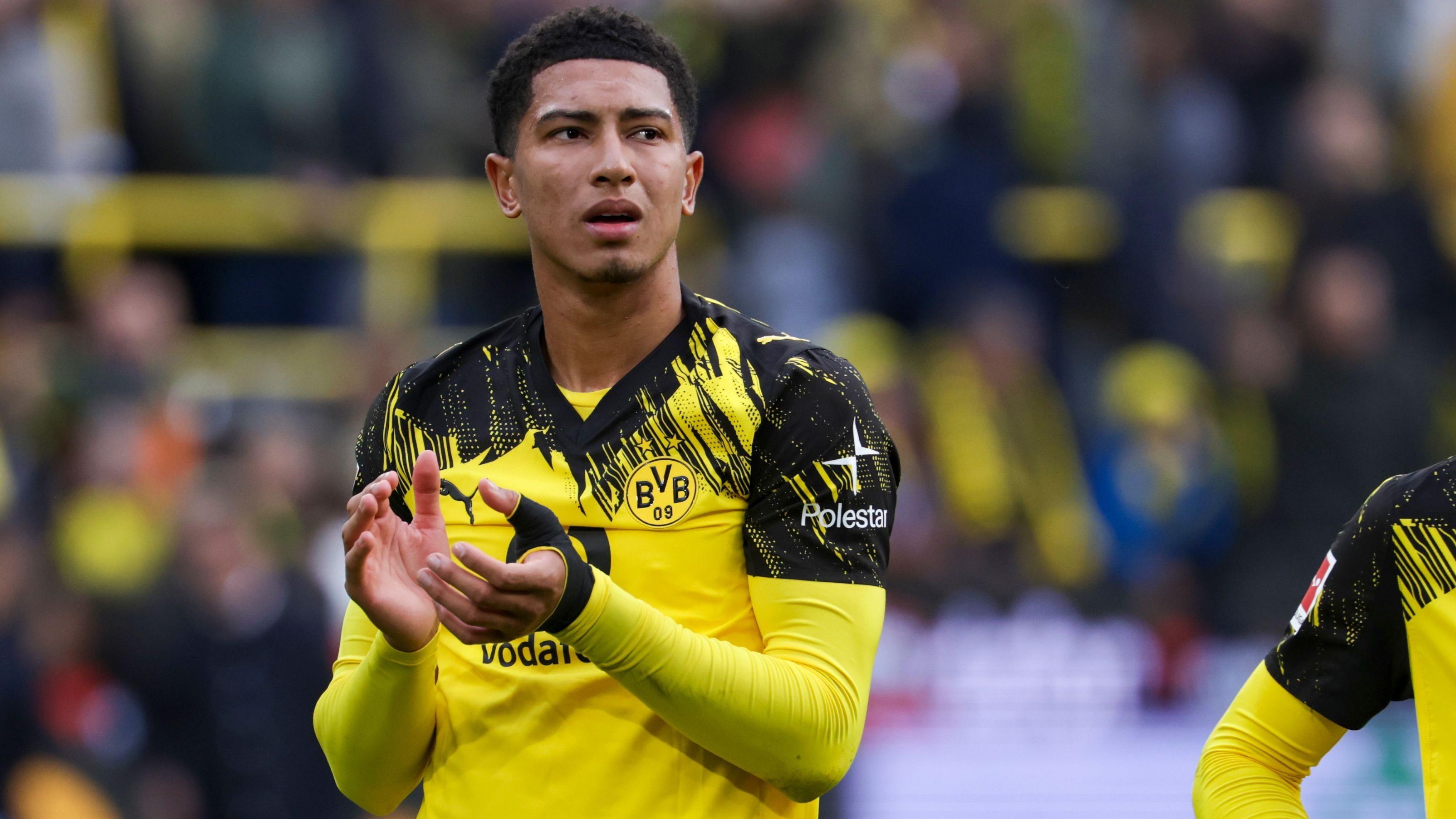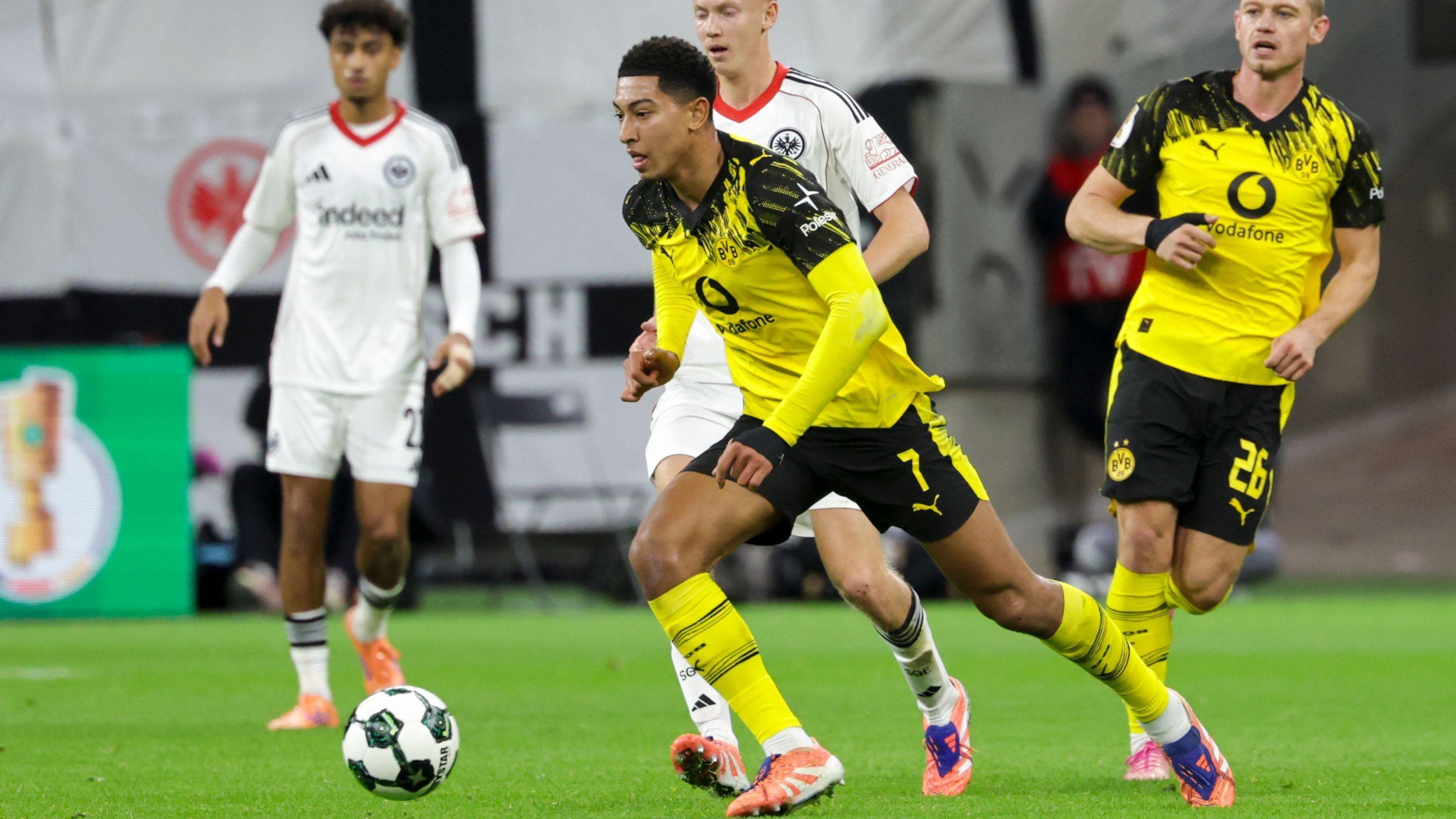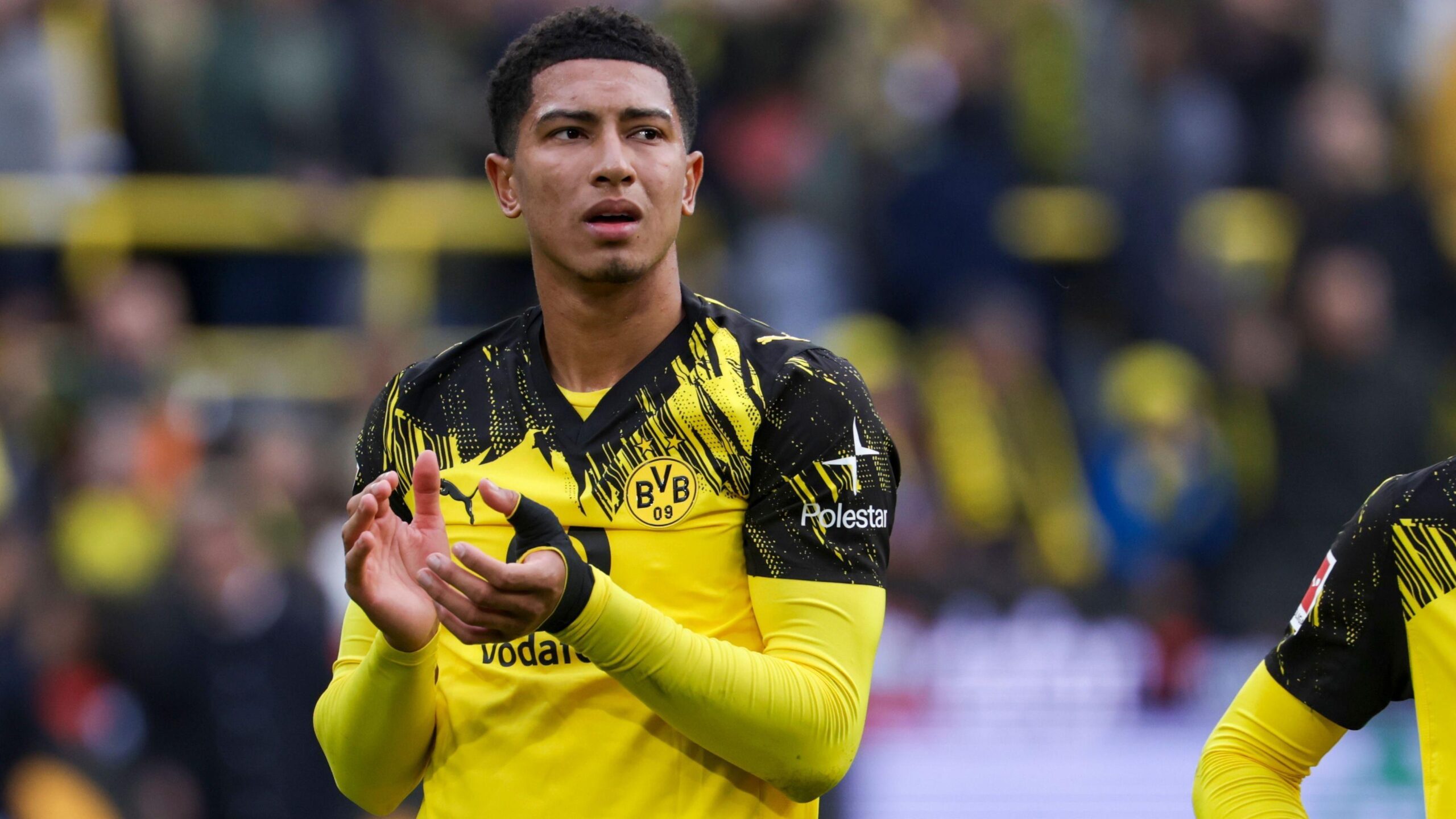Jobe Bellingham’s Struggles at Dortmund Mirror the Trials of a Political Underdog Fighting Against the Establishment’s Expectations and Prejudices in a High-Stakes Arena of Talent and Ambition
Jobe Bellingham’s journey at Borussia Dortmund has been a rollercoaster ride, marked by high expectations and the harsh realities of professional football. The younger brother of Real Madrid star Jude Bellingham, Jobe entered the Bundesliga with considerable fanfare, especially after a promising performance at the Club World Cup. However, the transition from the Championship to one of Europe’s top leagues has proven to be more challenging than anticipated.
Dortmund’s decision to start Jobe in their Bundesliga opener against St Pauli was seen as a vote of confidence from manager Niko Kovac. Yet, the match quickly turned sour for both the team and the young midfielder. After a lackluster first half, Bellingham was substituted, a move that sparked controversy and led to a confrontation between his father, Mark Bellingham, and Dortmund’s sporting director, Sebastian Kehl. This incident highlighted the intense pressure surrounding Jobe, as expectations were set high from the outset, given his brother’s meteoric rise.
The aftermath of the St Pauli game saw Jobe relegated to the bench for most of the subsequent matches, a situation that was not directly influenced by his father’s outburst but rather by Kovac’s tactical choices. The manager’s preference for a formation that did not favor Bellingham’s style of play left the young talent struggling to find his footing. While he had thrived in a more attacking role at Sunderland, Dortmund’s setup required a different skill set, and it became evident that the club was still searching for the best position for him.
Despite the setbacks, Jobe has shown glimpses of his potential. He has made significant contributions in the Champions League, where he has registered assists in key matches. This suggests that Dortmund is committed to developing him over time, even if his Bundesliga appearances have been limited. The challenge remains for Bellingham to adapt quickly to the demands of top-flight football, especially when coming on as a substitute in high-pressure situations.
One of the most telling moments of his season came during the Bundesliga ‘Klassiker’ against Bayern Munich. Bellingham’s brief appearance was marred by a misstep that led to a goal for the opposition, encapsulating the struggles he has faced in making an impact. Such moments can be detrimental to a young player’s confidence, especially when the stakes are as high as they are in the Bundesliga.
The narrative surrounding Jobe is complicated by the shadow of his brother’s success. Jude Bellingham’s rapid ascent to stardom at Dortmund set a precedent that Jobe is now expected to follow. The club’s investment in Jobe was significant, mirroring the fee they paid for Jude, which adds to the pressure. While Jude was heralded as a generational talent, Jobe’s path has been less straightforward, requiring him to navigate the expectations and comparisons that come with being part of such a prominent footballing family.
Dortmund’s management has expressed patience and a desire to cultivate Jobe’s talent, recognizing that he may need more time to adjust than his brother did. The club’s history of developing young players is well-documented, and they are keen to replicate the success they had with Jude. However, the pressure to perform can be overwhelming, and the early struggles may lead to doubts about whether Jobe can carve out his own identity in the footballing world.
As the season progresses, there are signs that Jobe is beginning to find his rhythm. His performances in the German Cup and recent Bundesliga matches indicate that he is starting to adapt to the demands of the league. His ability to contribute defensively, as seen in his efforts against Augsburg, suggests that he is becoming a more well-rounded player, capable of fulfilling various roles within the team.
The competition for places in Dortmund’s midfield is fierce, with established players like Marcel Sabitzer and Pascal Gross vying for starting positions. This environment can be both a challenge and an opportunity for Jobe, as he learns from experienced teammates while also pushing himself to improve. The club’s long-term vision for him may involve gradually increasing his responsibilities as he gains confidence and experience.
While Jobe Bellingham’s journey at Dortmund has been fraught with challenges, it is essential to recognize that many young players face similar hurdles when transitioning to top-level football. The pressure to succeed can be immense, and the path to becoming a regular starter is rarely linear. With time, patience, and continued development, there is a realistic chance that Jobe can emerge as a key player for Dortmund, even if he does not replicate his brother’s immediate success.
The narrative surrounding the Bellingham brothers serves as a reminder of the complexities of talent development in football. Expectations can be a double-edged sword, driving players to excel while also weighing heavily on their shoulders. Jobe’s story is still unfolding, and as he navigates the ups and downs of his early career, he has the potential to forge his own legacy in the sport.

Jobe Bellingham will certainly feel his start to the season with Borussia Dortmund could have gone better.
Following a promising outing at the Club World Cup in the summer – where he grabbed a goal and an assist in his four appearances – and good performances during pre-season preparation, Dortmund manager Niko Kovac granted Bellingham a place in the starting XI for the Bundesliga opener against St Pauli in August.
But Bellingham was subbed off at half-time.
After the game, Mark Bellingham – the father of Jobe and Real Madrid star Jude Bellingham – went into the players’ tunnel, reportedly to confront Dortmund’s sporting director Sebastian Kehl.
Dortmund had fumbled a 3-1 lead at St Pauli, in part because rookie defender Filippo Mane was shown a red card in the 85th minute right before the hosts scored two goals to make it a draw.
But Bellingham Sr felt subbing off his son so early and witnessing what he deemed to be a rather dull style of football was enough to butt heads with Kehl and indirectly criticise Kovac’s work.
Dortmund’s hierarchy were not happy about what went on at St Pauli, even though Kehl tried to play down the post-match incident.
The club reiterated afterwards that only players, coaches and officials were allowed in such areas as the players’ tunnel.
Meanwhile, managing director Lars Ricken said the club had built a "trusting relationship" with the Bellingham family over the years and that they were waiting to see their son after his first Bundesliga game.
"They stood at the entrance to the locker room and also spoke emotionally with Sebastian, which isn’t a problem at all based on the relationship. Everything was cleared up already," he added.
Dortmund struggle to find Bellingham’s best role
In the aftermath of the St Pauli game, Bellingham found himself more often than not on the bench – though his decreasing playing time had nothing to do with his dad’s confrontation with Kehl.
He made his only other start in the Bundesliga in Dortmund’s second game against Union Berlin. He was subbed off after 71 minutes for Felix Nmecha.
In his first outing against St Pauli, Bellingham essentially played as a number 10 behind two strikers. Ever since, Kovac has preferred a formation with two centre midfielders and three forwards.
It is still hard to say which role Dortmund’s manager might see as the best fit for Bellingham. During last season at Sunderland, he often played alongside a more defensive-minded midfielder.
Nmecha has the physical presence for the number six role, while former Brighton midfielder Pascal Gross or the experienced Austrian international Marcel Sabitzer provide the necessary ball security for the number eight in Kovac’s 3-4-3.

Nine of Bellingham’s 14 appearances in all competitions this season have come as a substitute, but he has never sat on the bench for the full 90 minutes.
He even made two starts in the Champions League in victories against Athletic Club and FC Copenhagen, assisting two of Dortmund’s four goals in the latter.
This suggests Dortmund – who visit Manchester City on Wednesday – are interested in developing the 20-year-old over time.
But it has not been easy for Bellingham to make an impact when coming on for the final moments of a game.
The low point of his season so far was probably his brief outing against Bayern Munich in the Bundesliga ‘Klassiker’.
Dortmund were trailing by one goal when Bellingham came on in the 73rd minute. A few minutes later, Harry Kane set up a great counter attack by delivering a long ball to Luis Diaz.
As the former Liverpool winger outplayed defender Waldemar Anton and passed the ball past goalkeeper Gregor Kobel, Bellingham found himself in front of the goalline. He tried to stop the ball from crossing the line but accidentally stepped on the ball, serving it to Michael Olise on a silver platter.
Bellingham was not the main reason Dortmund conceded a second goal at Allianz Arena, but the whole sequence embodied the first phase of his season.
He meant well, he was right there in the line of fire, but he did not make a great impression.
Dortmund want a second Bellingham fairytale
Bellingham had only played in the Championship before his arrival in Dortmund and had to deal with incredibly high expectations from the get-go.
Dortmund paid roughly the same transfer fee for him as they did for his brother Jude when he joined in 2020.
Jude was deemed a generational talent at the age of 17 after only one full season with Birmingham City. Meanwhile, Jobe – albeit gifted – spent several years at Birmingham and Sunderland. He needed a longer runway to get to Dortmund.
And yet Dortmund made sure to pound the narrative that history could repeat itself.
The three-year-long run with Jude was a win-win for everyone. He almost immediately established himself as one of the most promising midfielders in the Bundesliga and eventually left for Real Madrid after a great spell for a record transfer fee.
Perhaps expectations for the younger brother were too high in August, especially following Bellingham’s performances at the Club World Cup. The downfall happened quickly, but so can his rise.
In the games following the loss to Bayern Munich, Bellingham has started to impress more and more, even though he is still only a substitute in the Bundesliga.
He played 120 minutes against Eintracht Frankfurt in the German Cup, as Dortmund powered through to the penalty shootout on enemy soil and advanced to the next round.
Even his effort against Augsburg in the Bundesliga on Friday did not go unnoticed. Dortmund tried to sail home with a 1-0 lead and Bellingham made sure to deny a few of Augsburg’s offensive attempts.
"I believe things go faster than even I could have imagined, because the lad has really a lot of quality," Kovac said after Friday’s game.
There is a realistic chance that with time, Bellingham will become a regular starter in Dortmund’s central midfield.
Sabitzer has not set the world on fire as a playmaker. And Gross, while respected and always reliable – as Brighton fans can attest – is 34 and cannot go full force every game anymore.
Dortmund might not get a Jude-like fairytale, but with patience, the younger Bellingham could turn into a success story.

